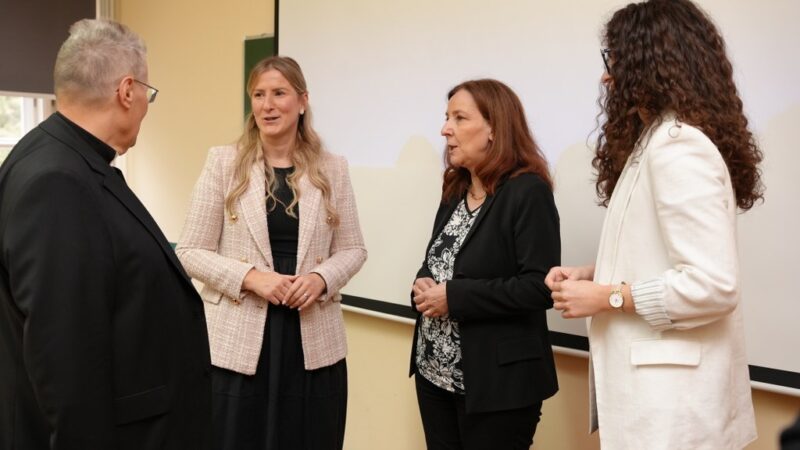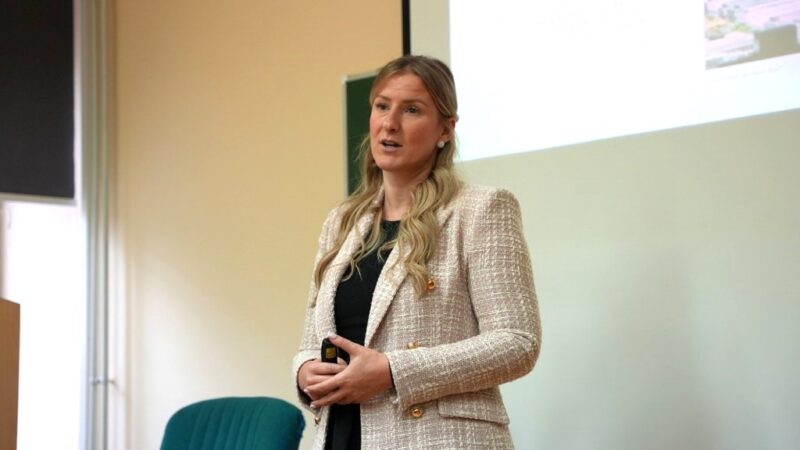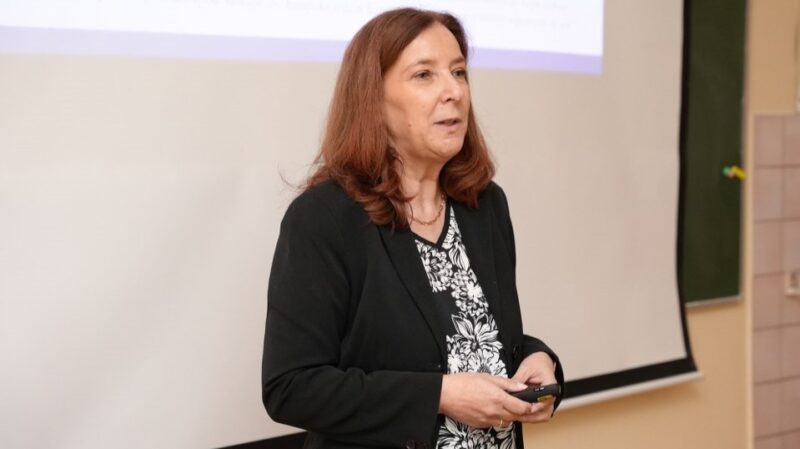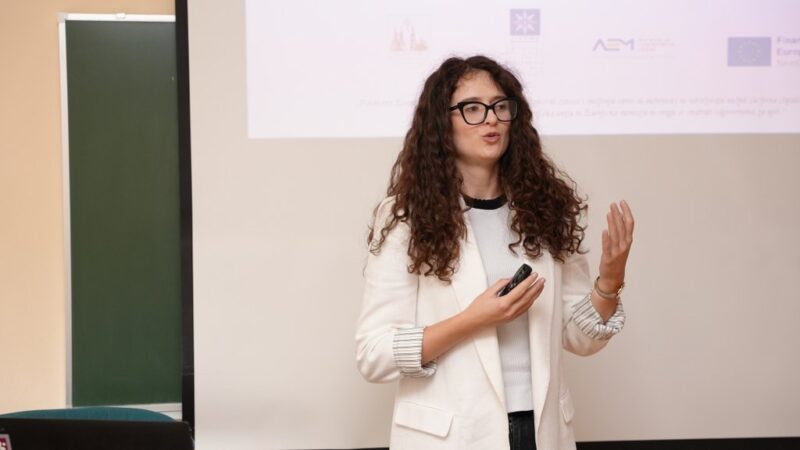Share
Faculty Members from the Department of Communication Held Seminar on “Critical Analysis of Disinformation on Religious Topics” in Đakovo
On Saturday, 5 October 2024, at the Catholic Faculty of Theology in Đakovo, Assoc. Prof. Dr. Lana Ciboci Perša, Assist. Prof. Dr. Suzana Peran, and Hana Kilijan, mag. comm., from the Department of Communication at the Catholic University of Croatia, held a seminar entitled “Critical Analysis of Disinformation on Religious Topics” for parish correspondents of the Archdiocese of Đakovo-Osijek.

The seminar was organized in collaboration between the Press Office of the Archdiocese of Đakovo-Osijek and the Department of Communication of the Catholic University of Croatia, along with partners – Croatian Catholic Radio, the Croatian Association of Catholic Journalists, and independent journalist Ivica Zadro. The seminar lectures were delivered by Prof. Dr. Ciboci Perša, Assist. Prof. Dr. Peran, and Hana Kilijan. The first part of the seminar was also attended by Archbishop Đuro Hranić, who briefly met with the lecturers.
The participants and lecturers were welcomed by Mr. Dario Hrga, Chancellor of the Archdiocese of Đakovo-Osijek and Head of its Press Office. He explained that the Croatian Encyclopedia defines disinformation as intentionally false or misleading information, often resulting from unchecked sources. He emphasized that the Church is not immune to disinformation: “Once news is published in our Catholic newspapers, internet portals, radio or television, its truthfulness is carefully weighed and verified. Why? Because the Church is an institution founded on Truth and is called to speak only the truth… We see that truth is at the heart of information – without it, information becomes disinformation or distortion.” He also warned about the role of artificial intelligence in creating fake content, before giving the floor to the lecturers.
Prof. Dr. Lana Ciboci Perša opened with a lecture titled “From Information to Disinformation”, in which she introduced the project “Critical Analysis of Disinformation on Religious Topics”, noting that one of the project’s goals is the development of a tool for verifying religious disinformation. For such a tool to be accurate, it must be based on a wide range of real examples from the media. She presented a study conducted in January and February 2024 with 600 participants, which found that social media is the most common source of false information on religious topics. Although respondents struggled to recall specific misleading religious stories that had a large impact, many mentioned media reports about the Pope’s blessing of same-sex couples and public rosary prayer gatherings. Prof. Ciboci Perša explained that Pope Francis considers disinformation a sin of journalism and clarified that while explicit disinformation is hard to find, misinformation (false content shared without harmful intent) and malinformation (accurate content used maliciously) are widespread. She also addressed the growing role of AI-generated disinformation, taught attendees how to recognize AI-generated images, and explained different types of information disorders and their consequences, encouraging critical thinking in media consumption.

Assist. Prof. Dr. Suzana Peran gave a lecture on “Disinformation About the Catholic Church in the Media”, referencing a passage from the Gospel of Luke, where Luke writes to Theophilus after “carefully investigating everything.” She cited the Church document Communio et Progressio and Pope Paul VI’s message for the World Communications Day, “Social Communications in the Service of Truth”, as well as Pope Francis’ appeals to combat fake news and promote journalism of peace—understood not as sentimental, but as truthful journalism that resists lies, catchy slogans, and sensationalism. Dr. Peran reflected on COVID-19-related infodemic and disinformation, media distortions about the Pope, and false information circulating on social networks and fake profiles. She also presented examples of Church-led responses to disinformation, such as the Roman Catholic Archdiocese of Singapore, the German Bishops’ Conference, and the Church in Brazil, which founded Bereia, an organization for fact-checking religious news. Drawing from her own experience as Editor-in-Chief of the Catholic Information Agency (IKA) until 2018, she shared how IKA responded to falsehoods in the media.

The seminar concluded with a journalism workshop led by Hana Kilijan, mag. comm., who currently works at IKA. She pointed out common mistakes caused by lack of understanding of theological terminology and inaccuracies in reporting. She explained the difference between news and reports, emphasized that every media release must be accurate, timely, impartial, and complete, and reminded attendees of the 5W+H rule and inverted pyramid structure. She clarified terms often confused in reporting, such as the differences between exhortation, homily, and sermon, as well as solemnities, feasts, and memorials. Kilijan also stressed the importance of correctly using ecclesiastical titles and roles, and advised against certain common language constructions. Throughout the session, parish correspondents actively asked questions, raised concerns, and expressed their commitment to accurate and truthful reporting from their parish communities.

Text and photos: Catholic Information Agency (IKA)









